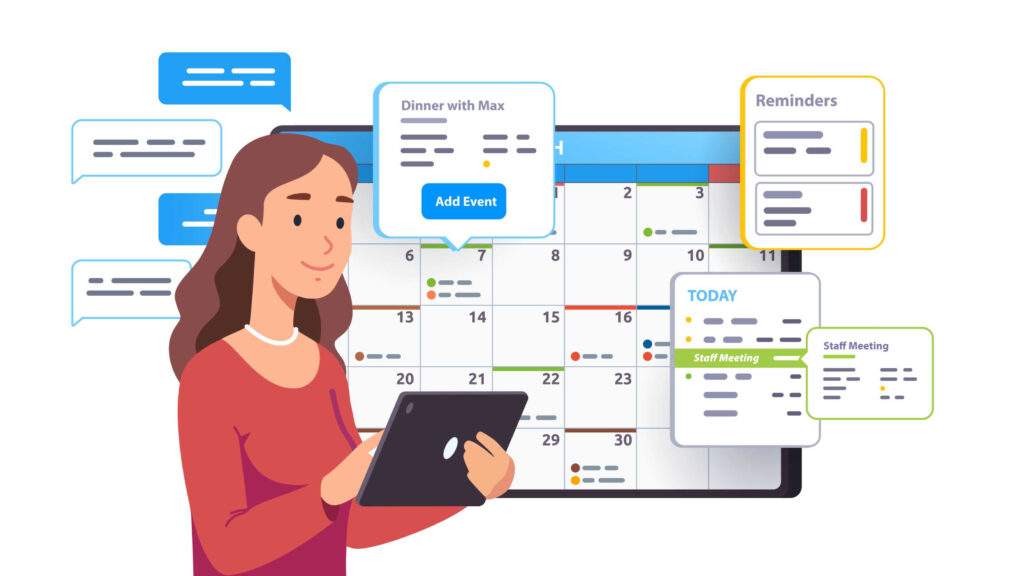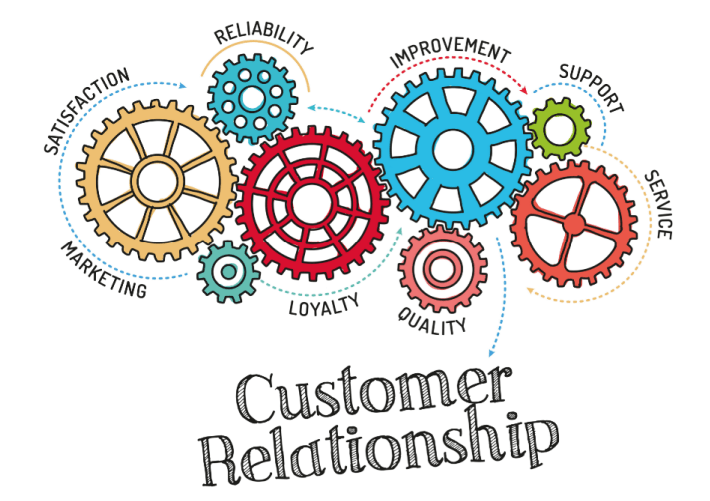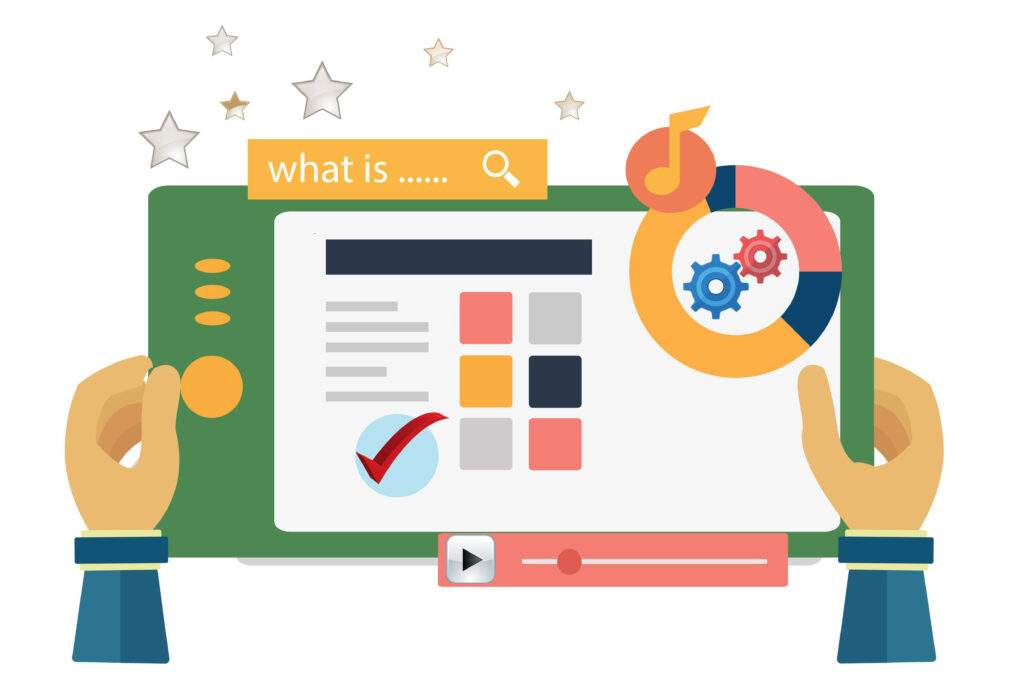Business expense is a touchy subject. It’s not always easy to know how much to spend, or even what to spend it on—especially when it comes to new technologies. Ultimately, when it comes to business management technology, the true financial risk comes from sitting on the sidelines.
The Aberdeen Group reports that small businesses that implement ERP, CRM, and other business management technologies reduce operational costs by 23%, administrative costs by 22%, and increase on-time deliveries by 24%.
Overall, 95% of businesses surveyed achieved major improvements after utilizing interconnected module ERP software.
Despite many small business executives being aware of the positive financial impact that utilizing business management solutions can have, it’s common to still be wary about actually diving in head first and implementing these solutions.
Some common questions that small business owners ask themselves about business management technology would be:
“How do I know what technology can support the unique components of my business?”
“With so many different solutions on the market, how do I parse through them?”
“Will the perceived discomfort of implementing this technology be worth it?”
“Is my business big enough to warrant the use of a business management software solution?”
Answers to these questions are never immediate or obvious. It takes time to research, analyze, and find the best fit for your company—but first, you need a plan:
How To Know When It’s Time To Invest In Software
1. When Scheduling Is Going Awry
Businesses use all kinds of apps for scheduling. Google provides handy calendars, and many people simply use the calendar built-in on their phones. And yes, physical calendars hanging on the wall still exist, too.
While there’s nothing inherently wrong with these types of calendars, it becomes an issue when they become out of sync. Some employees work remotely, some are constantly in the field, and others simply don’t adhere to the conventional 9-5.
Having to constantly ask “Are you free to meet at ___?” becomes an inefficient and unproductive use of time when multiplied across an entire organization every single day. This doesn’t take into account the importance of scheduling meetings with customers and others outside of your company.

It’s important to have a single, accurate, universal calendar that you and all of your employees can access from anywhere. It should contain all of the various tasks, milestones, and time-off considerations needed to have a streamlined workday free of confusion and schedule conflicts.
2. When Remote Work Becomes Challenging
Since 2020, remote work has evolved to change the way businesses operate. Many employees report higher levels of productivity, reduced stress, and financial freedom when they’re able to do their jobs from home—or, really, anywhere that isn’t the office.
While remote work has by and large been a benefit for businesses that have been able to make such a transition, it hasn’t come without proper planning and management.
HR departments need to adjust their practices, project management strategies have to adapt to geographically scattered employees, and customer relationships need to be maintained in new ways—the list goes on. At the heart of the way that these new norms come to be is the technology used to facilitate them.
3. When You Spend Too Much Time On Tedious Tasks
Mundane tasks are often important tasks but that doesn’t mean you should be spending a disproportionately large amount of time on them. Put another way, there are often smarter ways to tackle these kinds of tasks.
Automation is one of the key benefits of business management software. Tracking inventory, managing employee certifications, accounting, and even market campaigns are some of the areas where software can benefit your business.

4. When Growth Is Imminent
While you don’t have a crystal ball to tell you exactly when your new customers will roll in, there are ways to know when growth is on the horizon. The cumulative effect of the work you and your employees have been doing for years eventually pays off. Sometimes it takes months, other times it takes years. But if you don’t properly plan for the success coming your way, you’ll be behind the curve when it comes time to manage a higher volume of business.
As the old adage goes, “Dress for the job you want, not the job you have.” Look at business management software in the same light—invest in an ERP for the company you want to grow into, not for the company you are at this very moment.
5. When Your Decisions Are Solely Gut-Based
Many small business owners rely on their intuition to make decisions. Entrepreneurship is full of success stories that come from decisions based on “gut feel.” While this can be effective when a business is just starting and has no data to pull from, it’s a whole different ball game when it comes to making decisions once years and years of data is available.
For example, take Walmart. Not a small business, obviously, but every business starts somewhere. In Walmart’s early days, they were suffering setbacks by selling products at such a low cost that it wasn’t profitable. To paraphrase Sam Walton’s gut instinct, “If I offer the lowest prices, I’ll eventually generate the highest volume.” Obviously, this paid off.
Flash forward to today. Do you think that the executives at Walmart are making their decisions based on gut instinct alone? While they certainly rely on human intelligence, they more importantly rely on swathes of customer data, sales figures, production trends, material costs, and countless other data points.
While you won’t necessarily have billions of dollars to throw into an R&D department, you do have the option to utilize business management software to help guide you to better, more data-driven decisions.
6. When You Need To Pay More Attention To Customer Relationships
Reaching potential customers is hard, conversions are even harder, and retaining a regular customer base is the hardest of all. It’s easy to get excited about customers arriving en masse. But in reality, is your sales and administrative staff logistically prepared to handle a large influx of customers?

One of the biggest benefits that business management software can offer a growing company is the ability to automate parts of the sales funnel. The human touch is still crucially important to the process, make no mistake—that’s exactly why it’s crucial to adopt automation technology.
Automating email campaigns, customer surveys, and the inputting of sales data within your system will allow the people within your business to direct more human attention to the people deciding to purchase your product or service, not to the back-office work done behind the scenes.
7. When You Need Data Redundancy
With many staff members across all industries routinely working remotely, data security has taken on an increased level of importance. Hopefully, even if your business’ files are stored on a local hard drive, you have some sort of data protection and/or backups in place.
If this isn’t the case, or your backups are located on scattered flash drives and external hard drives, it may be time to invest in the cloud-powered data redundancy technology that business management software offers.
Cloud storage is the safest way to back up your most precious data and documents. Decentralized across multiple servers and protected by world-class encryption technology, your data will be actively protected by security professionals.
In a 2021 study led by IBM, the average cost of a small business data breach for companies with less than 500 employees was $2.8 million dollars. Needless to say, this is a cost small businesses simply cannot afford.
8. When Your Employees Are Burnt Out
Work-related stress is going to happen with or without business management software. That’s just a fact of life. Meeting project deadlines and landing a big customer may always be stress-inducing events, but the methods by which those goals are accomplished don’t always have to be stressful.
Issues like missing documents, faulty financial data, and communication breakdowns don’t have to add stress to an already stressful professional workload. If your employees have voiced any of these concerns—or if you’ve felt them personally—take that as a sign to explore some business management software solutions.

9. When Compliance Measures Take On Increased Importance
Whether it’s meeting OSHA requirements, getting documents ready for tax season, or just maintaining general legal compliance throughout your operations, it’s financially and fiscally prudent to stay ahead of the curve when it comes to keeping things organized.
Having trouble locating this data, let alone losing it outright, can cost you and your business in both the short and long term.
If your business is able to keep this data centralized and easily accessible to all necessary parties, you’ll be able to find information and make updates quickly without having to delay any contracts, miss tax deadlines, or lose any customers.
10. When You’re Spending Too Much On Technology
There will always be some costs that will be unavoidable. Computers eventually get old, cables eventually fray, and interns eventually spill a pot of coffee all over the keyboard. It happens.

What doesn’t have to happen is the large-scale purchasing of equipment such as servers and software on a routine basis. Sure, software upgrades always occur no matter the type of software you’re working with, but it doesn’t always have to come in the form of a massive expenditure.
Most business management software bills on a monthly basis, with software routinely being upgraded on a monthly or quarterly basis. When it comes to expensive servers, you can cut them out entirely. Powered by the cloud, the cost of maintaining servers falls on the service provider, not you.
Where To Find Reliable Information
Finding reliable information is one of the most challenging things about today’s hyper-digitalized society. When it comes to making big business decisions, it’s important to act off of smart and reliable information.
Beyond the basic subscription costs and features, it’s important to dig into some of the finer details about the software you select to manage your business operations. Onboarding, implementation, and training costs, customer support packages, and verified user testimonials are just some of the pieces of information to consider throughout your search.
Fortunately, there are trustworthy websites dedicated to helping businesses like yours make the smartest decisions possible. When it comes to your business, you can’t be too thorough.
G2
G2.com is an industry leader in all things software—they’ve compiled over 1.5 million authentic software reviews for ERPs, video conferencing solutions, eCommerce platforms, and much more.
Their goal is to help businesses make better decisions about technology. You can break down the pros and cons of each software listed on their site as well as compare prices and features between various software solutions.
One of the greatest advantages that G2 offers is the way that it displays its user reviews. Users are asked about the pros, cons, and overall “whys” for each respective software title, and users also list the type of business they represent, what industry they serve, and how many employees are in their organization.
For example, there could be lots of glowing reviews about a software solution that primarily services large-scale manufacturing companies. While this software is great, it may not be great for your business, which, for example, could be a small catering company with 20 employees. Knowing the specifics of the businesses behind the reviews makes all the difference.
Capterra
Capterra.com is another industry-leading software review website that has compiled over 1.5 million verified reviews in over 800 software categories.
Their mission is to list every software product on the market so that every business can adequately search for its perfect software match. Founded in 1999, they’ve always been one of the leading free resources for software reviews.
Capterra breaks down its user reviews into an intuitive format. It asks users about the pros and cons of each software product while gathering a 1 thru 5-star rating in 5 categories—overall rating, ease of use, customer service, features, and value for money. It also lists a “likelihood To recommend” category that’s based on a 1 thru 10 scale.
Another great feature that Capterra offers is the ability to see what software alternatives users considered before settling upon their final choice, and what software they had previously switched from. With so many solutions available, it’s very helpful to have this firsthand knowledge.
Custom Demos
When it comes to software, the best way to see if it’ll work for you is always to try it yourself. Fortunately, that doesn’t require diving headfirst into a contractual commitment.
Most reputable software companies will offer you a free, custom demo of their software. It’s important to know that certain specificities within your operations can be accounted for.

For example, accounting software that doesn’t offer the ability to translate financial metrics into Canadian dollars may not be a good fit for your manufacturing business that has several clients in Canada. Or, if your business works on government contracts, you’d want to make sure that certain data can not be viewed by certain users within the system.
Even if your business is a somewhat run-of-the-mill operation, getting a demo of the software is a great way to ensure that the user experience, onboarding processes, and data management tools are up to far for the requirements you set forth.
How To Pick The Right Fit For Your Business
So far we’ve covered when it’s time to start looking for business management software solutions and where to find the best information. Now, it’s time to explore how your business can pick the software that’s the “right fit.”
“Right fit” is a somewhat ambiguous term. It means different things for different businesses, even within the same industry. To put it another way, finding the right software fit is a lot like exploring the dating world.
Don’t judge a book by its cover, ask the right questions, and steer clear of red flags. It’s also important not to compromise what you want. Just like in the often chaotic, yet often wonderful world of dating, there are some general guidelines to keep in mind. But don’t forget, the right matches rarely fit inside of a broadly definable box—they require you to decide what you want and to make it happen.
Accounting Needs Accounted For
We’ll start with accounting because, well, it’s always about the money. It’s certainly not the only facet of software that’s important, but it’s something that’s universal among all businesses. And quite frankly, some software solutions do it better than others.

Strong reporting functionality, connectivity to the cloud, and automation capabilities are some of the “must-have” boxes that need to be checked off for competitive, modern business management software.
It’s also important to have a system that can be easily accessed by your customers and vendors. This way customers can pay invoices online, vendors can submit purchase orders and submit bills, and a full record of all transaction history can be pulled up with a click.
In today’s professional environment, it pays to utilize the best technology available—businesses that use cloud accounting software acquire five times more customers than businesses that don’t. Five times! Not only do the automation capabilities that come along with cloud accounting software reduce costs and increase efficiency, but customers will also feel better about trusting a company that trusts the best software on the market.
Project and Task Management Is A Breeze
At the end of the day, what does your work boil down to? The small tasks and projects that comprise the larger work that you do year after year. As a business owner, your job is to keep the big picture in clear view while still maintaining a firm grasp of what needs to be done on a granular basis.
With the right project management software, you’ll be able to do just that. It’s more than just assigning tasks and responsibilities, it’s about assigning the right people to the right jobs, keeping customers in the loop, and managing changes on the fly.
The best way to manage projects is by utilizing a microscope that can adjust from a wide-ranging, zoomed-out point of view to a hyper-specific, zoomed-in view and everywhere in between. Obviously, this is a metaphor for being able to manage both the big picture and granular details (unless you’re a scientist or something, then you can take this literally.)
Right now, only 22% of businesses take advantage of project management software despite the fact that 77% of high-performing projects undertaken by businesses put project management software to use. Project management capabilities are one of the many ways that business management software can keep your business ahead of the curve.
Top Notch Customer Support
Even high-performing software is only as good as the people behind it. It’s a lot like the food service industry—a restaurant could have the tastiest menu in the world, but if your waiter screws up your order and brings out a cold plate of food, it’s hard to say that this restaurant delivers upon its potential.
Business management software falls under the same ideological umbrella. The system could be top-notch from a technical perspective, but if the customer service and implementation teams do not properly assist your business in unlocking its full value, then it isn’t likely to be the best fit.

Even in our tech-centric world, it still takes a proper human touch for a business to succeed using a business management software solution. Every business is unique—developing a relationship with the people behind the software to make sure that the software accommodates your needs is a crucial aspect of success.
All-in-all, customer service and support is crucial. 90% of Americans take customer service into account when deciding whether or not to do business with a company, and 89% of customers are more likely to make another purchase if they have a positive experience.
Wrapping Up
Making decisions—especially large financial decisions that affect your entire business—is never easy. There are so many variables to take into account. And once you’ve taken all of those variables into account, you’ll find even more to consider.
At the end of the day, it comes down to knowing what your business wants and needs and conducting a thorough research process to seek out solutions that accomplish your goals. Business management software is never a one-size-fits-all solution for every business, but with the right tools, you can find the one that fits you and your business.

